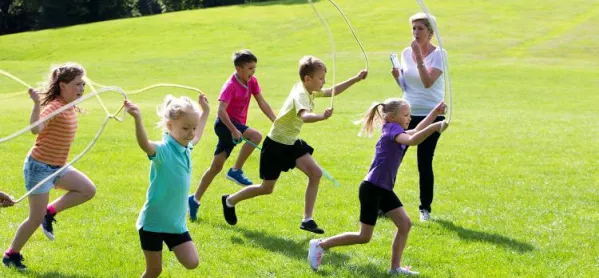The Premier League and BBC Education have launched a new initiative to get classrooms to be more active places. We sat down with Sinéad Rocks, director of education at the BBC, to ask what, exactly, they want teachers to do.
So, you think kids aren’t active enough?
Yes, recent research suggests there is a global shift towards physical inactivity. In just 44 years the UK became 20 per cent less physically active and this is trending toward a 35 per cent decline by 2030. That has serious implications for the UK’s children.
What type of implications?
Research also shows that active children’s brains actually work better. Physical activity improves cognition, concentration, attention, memory, planning and a host of abilities that are fundamental to educational success. Also, children who are less active are more at risk of becoming overweight or obese.
And you want schools to help?
We want schools to be part of the solution. The BBC and the Premier League are working in partnership on a new initiative called Super Movers. It helps primary school teachers to inspire children to become more active throughout their school day.
Do you mean like PE?
Actually, no. Super Movers is about integrating more physical activity into lessons. It’s about active learning. We have produced a series of videos to give children a workout while they learn about something in literacy or numeracy. You can watch the introductory video here.
The curriculum is tightly packed already and workload pressures are acute. This sounds like more work for teachers...
It shouldn’t be. It’s designed to be an easy way to integrate more movement into lessons. There are lots of free, curriculum-linked resources to use.
But is this just another thing teachers are going to have to be trained for, maybe even physically fit for?
Super Movers films are simple to use, most are linked to key literacy and numeracy concepts, but there are also some that are just for fun. You definitely don’t need to be able to do 10 laps of the school playing field to get match fit.
Any research to back this up?
Yes. Lots of research shows that doing short bouts of exercise helps children to focus on school work. And, according to US ergonomist Mark Benden, physical activity can also improve behaviour and make classes easier to manage.
So if teachers are interested, what should they do?
Taking part in the Super Movers Live Lesson on Thursday 18th January - a fun active maths session for 7-9 year olds - would make a great start.
You should also try to incorporate some physical activity into your lessons every day, even if it’s not your turn for PE in the hall.
Here are four resources you can use to make literacy and numeracy more active:
Lead pupils through practising correct use of punctuation by attributing a “kung fu” move to each piece of punctuation and performing these, complete with sound effects.
Get your students rushing around the classroom, seeking out hidden problems to solve.
Spread out pairs of numbered floor markers around the classroom. Get pupils to move around them to add or subtract the two figures. When pupils know the answer, get them to jump on the spot for the correct number of times.
Set out letter floor markers around the room and get pupils to move around to music. When the music stops, you read a sentence such as “The stadium is…” and pupils have to finish the sentence using adjective starting with the letter that is nearest to them.
Become a Super Movers school and find out more here: www.bbc.co.uk/supermovers
Want to keep up with the latest education news and opinion? Follow Tes on Twitter and Instagram, and like Tes on Facebook




